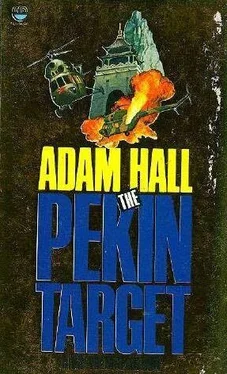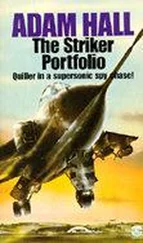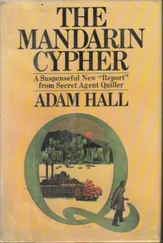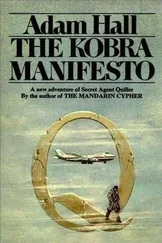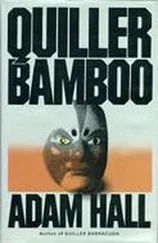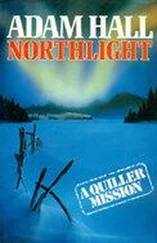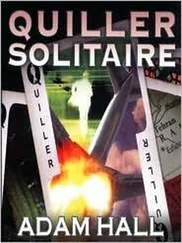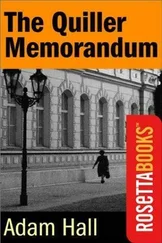ADAM HALL - The Pekin Target
Здесь есть возможность читать онлайн «ADAM HALL - The Pekin Target» весь текст электронной книги совершенно бесплатно (целиком полную версию без сокращений). В некоторых случаях можно слушать аудио, скачать через торрент в формате fb2 и присутствует краткое содержание. Жанр: Шпионский детектив, на английском языке. Описание произведения, (предисловие) а так же отзывы посетителей доступны на портале библиотеки ЛибКат.
- Название:The Pekin Target
- Автор:
- Жанр:
- Год:неизвестен
- ISBN:нет данных
- Рейтинг книги:3 / 5. Голосов: 1
-
Избранное:Добавить в избранное
- Отзывы:
-
Ваша оценка:
- 60
- 1
- 2
- 3
- 4
- 5
The Pekin Target: краткое содержание, описание и аннотация
Предлагаем к чтению аннотацию, описание, краткое содержание или предисловие (зависит от того, что написал сам автор книги «The Pekin Target»). Если вы не нашли необходимую информацию о книге — напишите в комментариях, мы постараемся отыскать её.
"Quiller takes over where Bond left off." (Bookseller)
The Pekin Target — читать онлайн бесплатно полную книгу (весь текст) целиком
Ниже представлен текст книги, разбитый по страницам. Система сохранения места последней прочитанной страницы, позволяет с удобством читать онлайн бесплатно книгу «The Pekin Target», без необходимости каждый раз заново искать на чём Вы остановились. Поставьте закладку, и сможете в любой момент перейти на страницу, на которой закончили чтение.
Интервал:
Закладка:
The fatigue was leaving me, and I felt a singing in the blood as the thought in my mind released adrenalin.
"You must find my son," he said.
His voice seemed to echo among the stone walls, as if he had shouted the words from a long way off, as if they were echoing among the mountains out there as well as in here, where the lamplight sparked on the gold of his robe and darkened his eyes in shadow.
One thing, yes, to be done, and to be done at once. Without awareness that I was preparing myself I could sense nerve and muscle and sinew awakening and becoming a force, and so rapidly that the explosion was only instants away as my eyes measured, my hands tensed, my thought raced toward detonation.
I think I had begun moving before his voice came.
"No. Not that way."
He sat perfectly still as the air became silent thunder, hurling me back against the wall.
22: Sinitsin
Igor Sinitsin.
I had heard of him more than once along the bleak corridors of the Bureau in London.
I had heard of him because he was one of our opposite numbers in the field; he worked for V, the Executive Action Department, a special service of one of the three Sub-directorates of the First Chief Directorate of the KGB.
Department V is the most secret arm of Soviet operations and responsible for mokrie dela, the 'wet affairs' outside the USSR involving sabotage, kidnapping, political assassination and similar blood-letting operations designed to create chaos in foreign governments at times of internal crisis, to paralyse communications, provoke hostility among non-Communist nations and generally to render foreign soil fertile for the seeds of Marxist-Leninism. V was once called the Thirteenth Department, or Line F, just as the Bureau was once designated Liaison 9 before it broke away from D16.
It is said, along the bleak corridors in London, that Colonel Igor Sinitsin was in Paris when the charge d'affaires of the Persian Embassy was found on the top floor of an apartment in the Place Pigalle with a steel knitting needle buried into his brain through the left eye and no trace of the belle de nuit who had lived and worked there for the last three years before striking up an acquaintance with a member of the visiting Ballet Russe.
It is said that Sinitsin was in Buenos Aires when one of our people got on to his track and was found the next day in the wreck of an elevator in the Hotel Conquistador with his spine driven upwards into his skull.
Tilson says that Sinitsin was involved in the assassinations of General Batista, President Sri Phouma and Minister of State Hasan Kazan, and that he personally despatched two gentleman acquaintances of Eva Peron in the hope of receiving her favours in their place.
"Not permitted," he said.
The small Korean interpreter, a cripple with thick glasses, put it straight into Chinese for Tung Kuo-feng.
Igor Sinitsin didn't look like the archetypal KGB officer; when I had come into the room with Tung five minutes ago I'd thought at first glance that he was a Scandinavian; of middling height, he was quick-moving and rather graceful, striking poses to suit what he was saying: feet equally balanced when he was being firm, as he was now; one leg bent and arms folded pensively when he considered. His eyes were light blue and he had the attractively crumpled features of an experienced ladies' man, not unlike Philby's; he dressed casually and at some cost: a silk scarf tucked inside the open neck of a Cardin shirt, the grey alpaca suit from Savile Row and the thin gold watch from Cartier's; this, anyway, was the impression they gave and the impression he wanted to create; for a ruthless KGB colonel it amounted almost to a disguise.
"You will have to permit it," the interpreter said in Russian, turning from Tung to Sinitsin.
The tension in the room was increasing rapidly; it had begun when Tung had brought me in here to find Sinitsin and his two aides sitting near one of the big radio transceivers. They had all stood up, less out of courtesy, I think, than out of an unwillingness to be caught off their guard; whether Tung carried some kind of ninja weapon in the folds of his robe or not, they were uneasy in his presence, perhaps because they sensed the same powerful emanations of ki that had seemed to throw me against the wall not long ago.
He had made the introductions through the interpreter: Mr West of British Intelligence, Colonel Igor Sinitsin of the KGB and his aides, Major Petr Alyev and Captain Viktor Samoteykin. The aides looked more traditional, with flat Slav faces and badly fitting suits; their expression hadn't changed during the introductions. Sinitsin had studied me with interest for a moment and then given me a brief energetic nod as from one professional to another; he hadn't bothered to hide the impression that as soon as possible he would have me shot dead. This wasn't only because I'd killed that marksman out there; in our trade the opposite numbers in the field don't bear each other any grudge, and there's even a degree of respect on an impersonal level; but the KGB have had their knife into me ever since I wiped out their Colonel Vader, right on his home ground in Dzerzhinsky Square: his own bloody fault, he shouldn't have tried to throw me into a political asylum, but it had really got them on the raw, and when I'd looked into Sinitsin's light blue eyes for the first time I'd known his thoughts.
"You will have to permit it," I heard the interpreter saying in Russian, "because otherwise our operation will be increasingly endangered." This was from Tung Kuo-feng.
After Tung had used the force of his ki against me as a warning that I must not try to kill him, we'd talked for only a few minutes longer. "I am taking you to the operations room," he had said, "to meet the Soviet contingent. I have decided not to attempt persuading them into accepting your cover as a NATO officer. Instead I am going to use you against them, and for this your true identity is essential."
Then he had briefed me.
We were still standing, all of us; the light was brighter in here than it had been in Tung's chamber; they'd set up two butane lamps, one on each side of the radio console, which was mounted on a wooden trestle; the light was bright and harsh, and shadows were sharp against the walls. This place wasn't an enclosed room but a kind of hall, with open arches at one end and massive double doors at the other, and iron sconces along the walls where the flames of oil lamps had left patches of soot on the ancient stones. In one corner a huge bench bore what looked like wooden printing blocks, carved with the letters of the Buddhist scriptures; along the main wall stood a hearth built of carved stone with a Buddha at each end, flanked by two faded tapestries.
The heat of the day was still in the building, and the night air was still; through the archways I could see two figures moving as the moonlight sent an occasional reflection from the weapons they were carrying: from this distance they looked like submachine guns. One of those men would be Yang.
He too was waiting to kill me.
Tung was talking again through the interpreter, whose accent I recognised as North Korean. "Since this agent arrived from London, my action group has come under increasing difficulties. I have been told that other members of his cell are now dangerously close to infiltrating our operation."
Sinitsin was listening carefully; the interpreter had run into trouble two or three times, hesitating while he looked for the right word, his dark head going down each time as if he were listening. He was good at his job: he knew what the situation was and he didn't try to alter the mood between Tung and Sinitsin by adding courtesies: when the Russian had said "Not permitted," a moment ago, the interpreter had spoken what sounded like only one word to the Chinese; in the same way, he'd told Sinitsin: "You will have to permit it," without any embroidery. The trouble he was running into was unavoidable even for an expert: the proximity of Korea and mainland China has led, over the centuries, to a degree of lingual transmigration; but the Russian influence in Communist North Korea has added specialist terms, particularly in the intelligence field, and the young crippled interpreter had probably had to change «Triad» to "action group" and come up with the strictly specialist phrase "infiltrating our operation" for Sinitsin's benefit.
Читать дальшеИнтервал:
Закладка:
Похожие книги на «The Pekin Target»
Представляем Вашему вниманию похожие книги на «The Pekin Target» списком для выбора. Мы отобрали схожую по названию и смыслу литературу в надежде предоставить читателям больше вариантов отыскать новые, интересные, ещё непрочитанные произведения.
Обсуждение, отзывы о книге «The Pekin Target» и просто собственные мнения читателей. Оставьте ваши комментарии, напишите, что Вы думаете о произведении, его смысле или главных героях. Укажите что конкретно понравилось, а что нет, и почему Вы так считаете.
